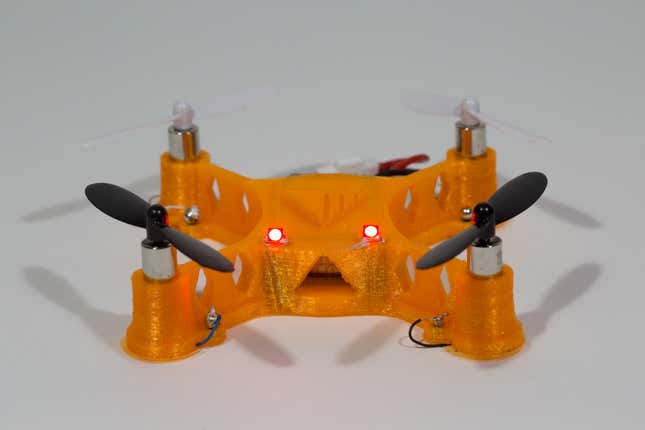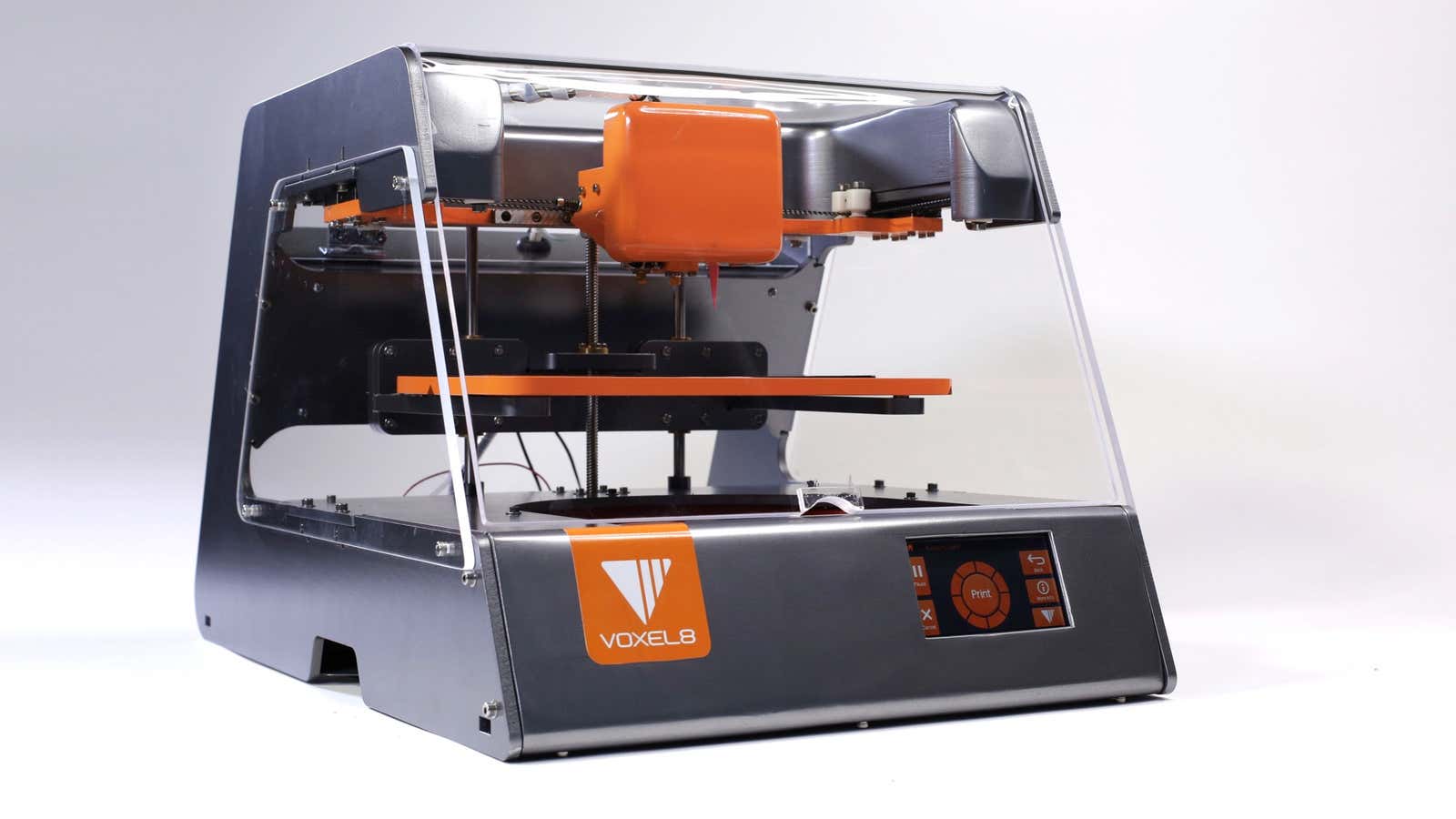Despite all the fanfare, 3D printing has yet to hit its stride. Up until now, its best uses have been in designing, prototyping, and making creepy copies of yourself. This tends to stem from the fact that you can generally only print with one material at a time, and in most cases, it’s faster to use traditional manufacturing methods than 3D printing. But Voxel8 wants to change that: Its printer can print circuits right into other objects.
“3D printing fails when it’s asked to do the same thing that a traditional manufacturing process already does,” co-founder Dan Oliver told Quartz. He said the company was born out of Harvard’s material science lab and the research of Professor Jennifer Lewis. Oliver said the name Voxel8 is a combination of “voxel”—which is a pixel with volume—and a play on the word “pixelate,” meaning to digitize an image. And that’s basically what its printer will let you do: make physical objects with digital elements.
Voxel8’s first printer comes with two printing heads—one prints standard 3D printer plastic, and the other spits out its proprietary material that’s electrically conductive. Oliver said it has the consistency of peanut butter and allows you to print circuits right into an object. The company used its printer to build a working quadcopter drone in one sitting. Oliver said that it’s possible to print a computer’s motherboard with the Voxel8: “We’re there, we can do that.”

Oliver said the company is already working on ways to incorporate other materials—like epoxies, silicone, and ceramics—into its 3D printer. The printing heads on its first printer are interchangeable, so in the near future, you’ll be able to print yourself some batteries, a web-connected cereal bowl, or even a pair of shoes loaded with sensors, if you felt so inclined.
“People will use this to make things we haven’t even thought of,” Oliver said. But Voxel8’s process is still quite slow: It took an hour and a half for the company to print its drone, so it’s not going to replace traditional manufacturing processes any time soon. However, Oliver envisions useful applications in the short term in medical and wearable technology, where more custom-fit, ergonomic devices would be more useful than one-size-fits all devices on the market.
On July 24, Voxel8 announced it had secured $12 million in funding to help bring its printer to market and develop its technology. The company showed off its printer at this year’s CES show, and it’s available now for pre-order for $9,000. Oliver said it will ship before the end of the year, and the funding will help guarantee that. Oliver views the company’s first printer as a developer’s model—similar to Facebook’s Oculus Rift shipping a version of its VR headset for researchers before fine-tuning its first consumer model. The company plans to use part of the funding to develop a higher performance version for a wider audience.
